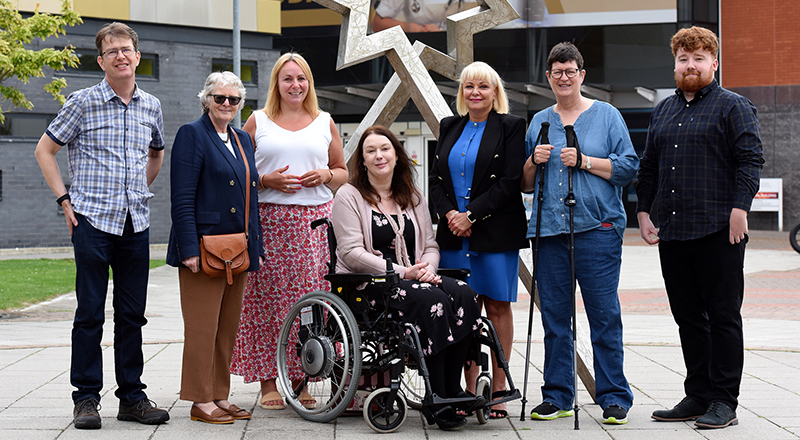Self-help tool users could impact future care for others
People living with long-term health conditions could help to shape future support for others through their use of a self-management tool which was created with input from a Teesside University research team.

MyLifeTool aims to help people living with long-term conditions to manage and adapt as it impacts on their life. It was launched in 2019 by Teesside University and Neuro Key (formerly the Tees Valley, Durham and North Yorkshire Neurological Alliance).
The team behind MyLifeTool was awarded research funding from the National Institute for Health and Care Research (NIHR) Applied Research Collaboration (ARC) North East and North Cumbria (NENC) to evaluate how beneficial the self-management resource has been for users across the region.
As part of their evaluation, the team also hopes to encourage new participants to try MyLifeTool. Input from users could also benefit others, as findings from the evaluation could help to shape a Patients Charter to improve care and support which is offered to people with long-term conditions across the region.
MyLifeTool is made up of a series of booklets, each with a focus on reflection, from coming to terms with a diagnosis to coping strategies to help with the physical or mental aspects of a condition. There are sections on taking control and setting personal goals, to connecting with others and finding your voice.
Dr Stephanie Kilinç is leading the research with Dr Judith Eberhardt from the University’s School of Social Sciences, Humanities & Law, along with Joanne Cole from Neuro Key and Teesside University researcher Matthew Dobson.
Dr Kilinç said: “The impact of long-term conditions can affect a person’s day-to-day life in so many different ways. This resource can be used whenever it is felt necessary by the individual.
“MyLifeTool was developed in partnership with people living with long-term conditions and is based on research into the same kind of experiences. It is much broader than the typical model of self-management and is not just about coming to terms with a diagnosis or living with a condition.”
Diane Williams, who uses MyLifeTool and is a Trustee of Neuro Key, said: “I run a pain support group in Thornaby and wish there had been something like this available much earlier in my own personal journey.
The impact of long-term conditions can affect a person’s day-to-day life in so many different ways
“I was in a car crash when I was 19, leading to multiple surgeries which has left me allergic to pain relief. MyLifeTool is tremendous, especially in the way it is tailored to each individual’s own personal needs.
“It allows users to get involved at their own pace, in their own homes. There are days when it can be a struggle, but being able to relate back to MyLifeTool really helps.
“Being involved in the development of MyLifeTool has been amazing, as it has provided an opportunity to support and work with like-minded people who are also going on their own journey and are in the same position.”
Jenny Joyce, who has a progressive illness and has been disabled for 16 years, said: “I can pick it up to use, as and when I need it and it is useful to be able to pick and choose which parts of the toolkit I might need at a particular time.
“It really helps me personally with pacing, especially on days when I might not feel like I have much energy. It is really good to know the support is there and that you can decide yourself what might help.”
Joanne Cole added: “We have been working for many years to harness lived experiences of managing life-long deteriorating conditions, impairments and disabilities. We have contributed to a body of knowledge to improve professional understanding of how people manage their lives and the psychosocial impact of chronic ill-health.
“People can feel isolated by their conditions but from the evidence here in our collaborative research, participants have recognised that they have become part of a new community that is valued and beneficial to others in the future.”
For further information on taking part in the MyLifeTool, contact Research Associate Matthew Dobson on m.dobson@tees.ac.uk.
In the News
Self-help tool users could impact future care for others
Northern Echo, p.35, Print and Web, 09/11/2022
MyLifeTool, developed with Teesside University, aims to help people living with long-term conditions to manage and adapt as it impacts on their life.
 Teesside University hosts groundbreaking hydrogen conference
Teesside University hosts groundbreaking hydrogen conference University supporting development of new £1m concrete plant
University supporting development of new £1m concrete plant Academic’s artwork on display at Middlesbrough station
Academic’s artwork on display at Middlesbrough station